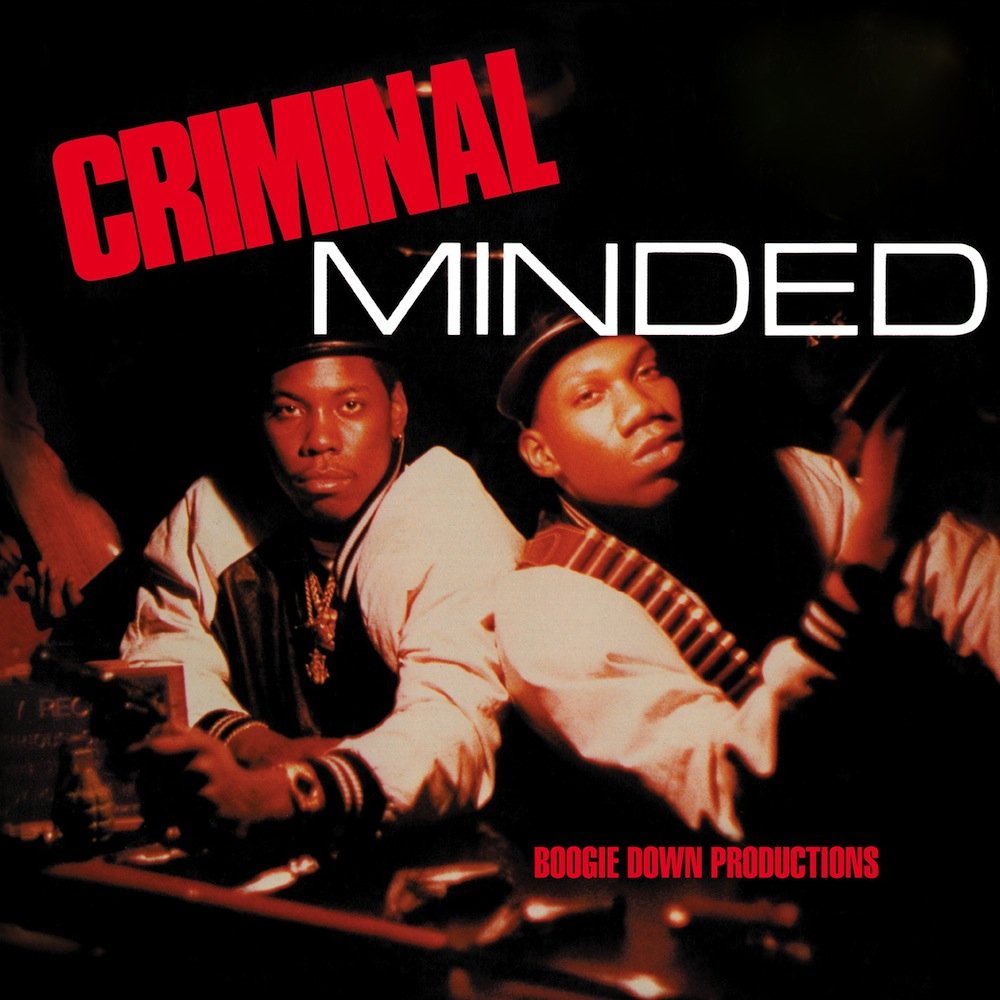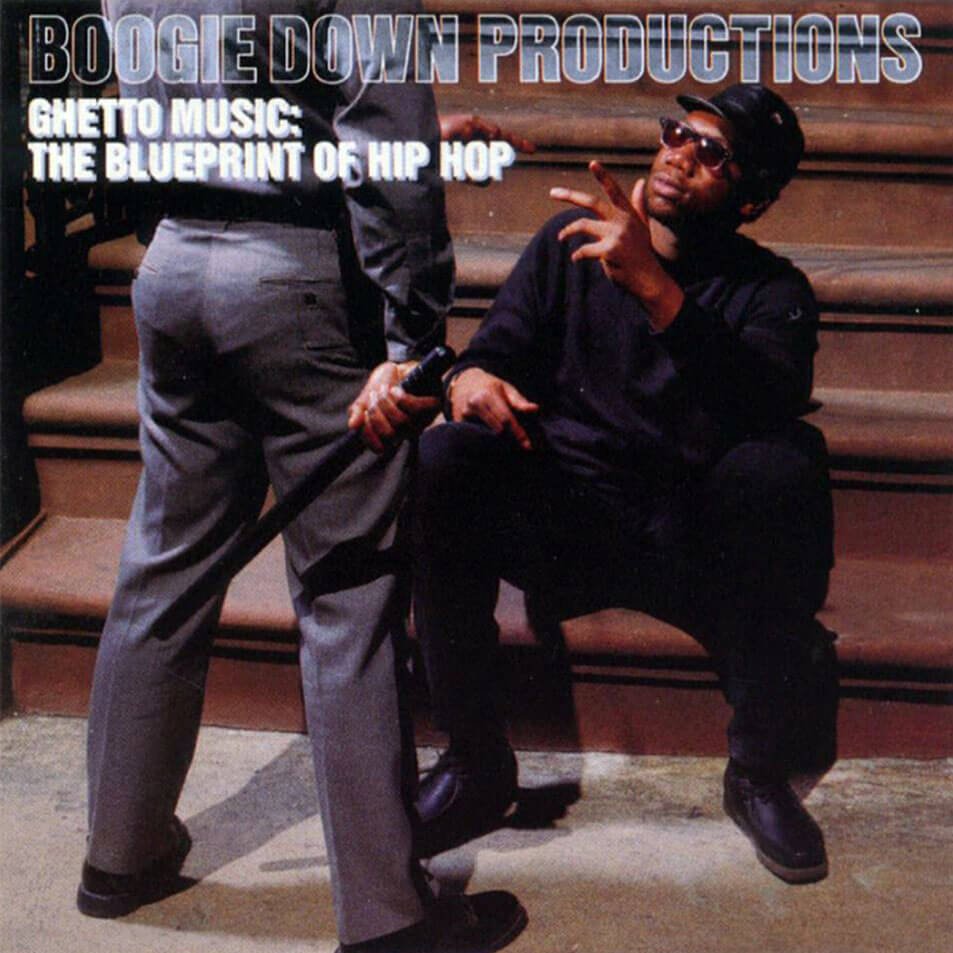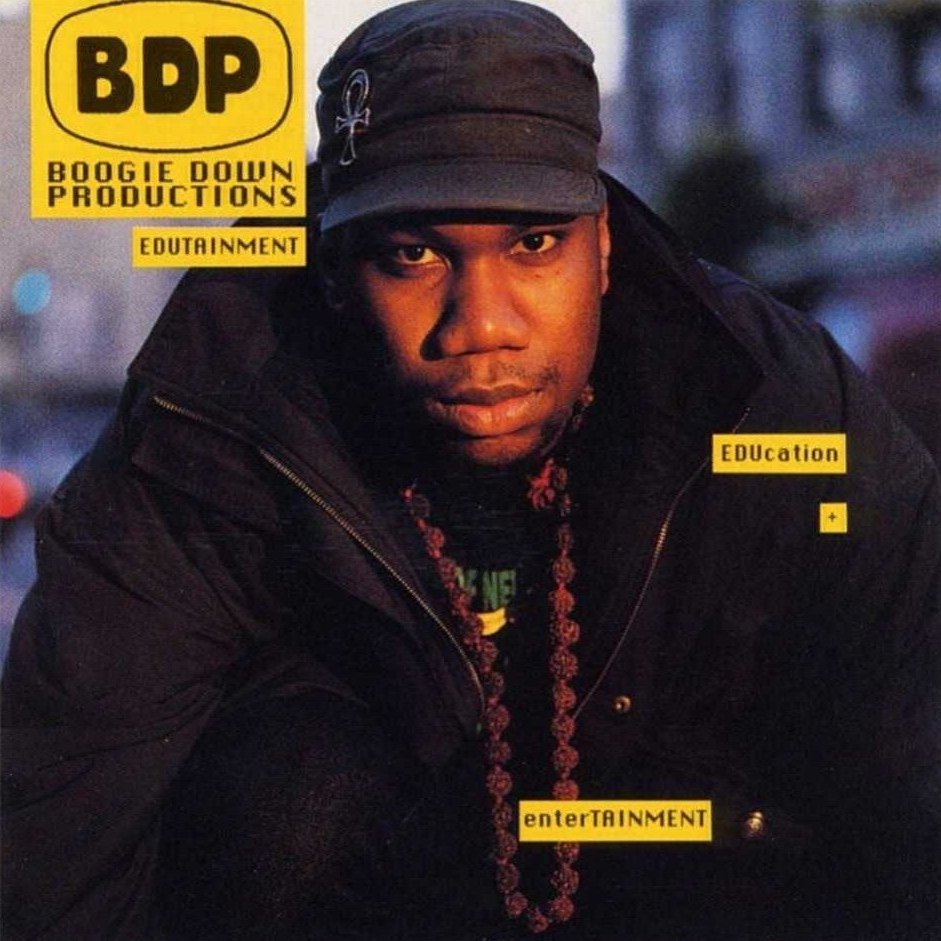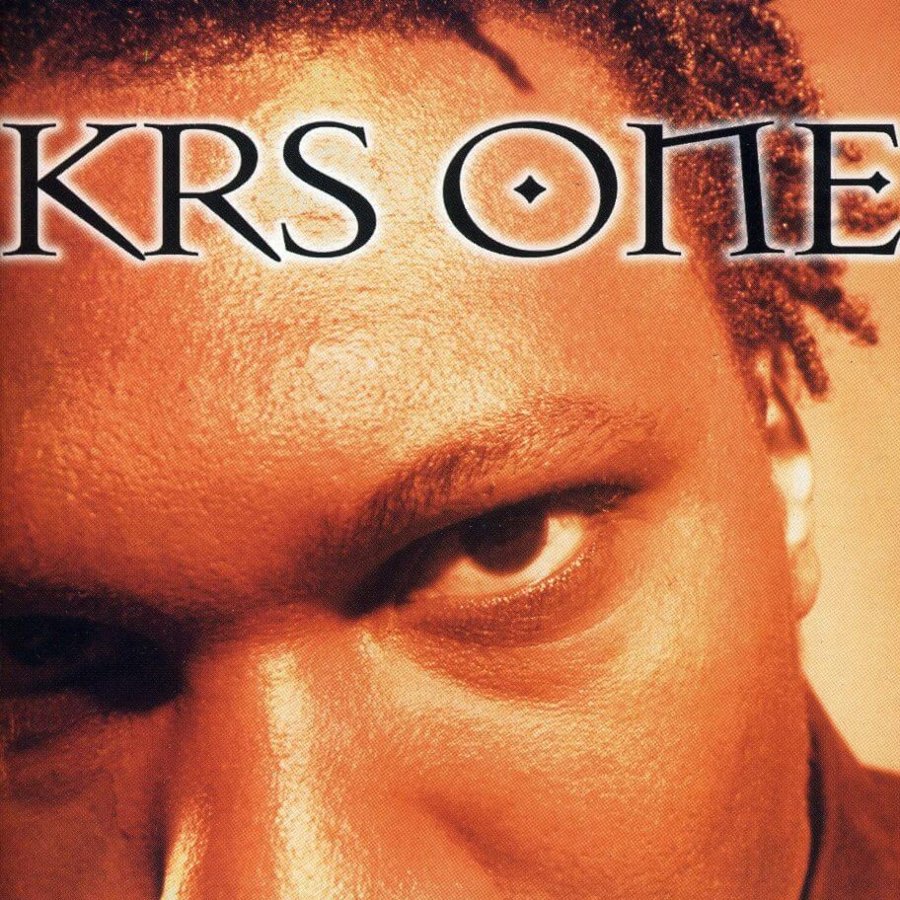Happy 35th Anniversary to Boogie Down Productions’ second studio album By All Means Necessary, originally released May 31, 1988.
The legend of KRS-One and Boogie Down Productions as we know them began with By All Means Necessary. During the late ’80s and early to mid ’90s, it was generally accepted amongst hip-hop heads that KRS was either the best emcee to ever pick up a mic or he was a close second. His counterpart Rakim was seen as the smooth, slow-flowing God, while KRS was the rough and tumble man of the people. He was an educator, but he was ready to mix it up and get down for his crown at any moment. It was By All Means Necessary, the group’s second album released 35 years ago, that cemented this role.
By All Means Necessary was released a little under a year and a half after the masterful Criminal Minded. Criminal Minded was the portrait of young man, Lawrence “KRS-One” Parker, doing what he needed to survive on the streets of the South Bronx, accompanied by Scott “La Rock” Monroe Sterling, his DJ and mentor. Meanwhile, By All Means Necessary presented a more focused KRS-One, an emcee who was ready to take on the police, the government, and protect hip-hop’s honor. Criminal Minded may be the slightly better album, but KRS-One built his career and legacy on By All Means Necessary.
BDP recorded By All Means Necessary after the death of Scott La Rock. Scott had been the group’s DJ and driving force behind its creation, as well as the surrogate big brother to KRS and other members of the group. KRS has said that if Scott hadn’t died, By All Means Necessary would have sounded a lot more like Criminal Minded, maintaining the group’s rougher street edges. However, Scott’s death galvanized KRS and the group, inspiring them to pivot toward a different direction with their music. As the album’s cover and title suggest, KRS now viewed himself as the hip-hop Malcolm X, looking to inspire action through his education and leadership.
By All Means Necessary is a revolutionary album, and not necessarily because of its political content. Here KRS-One was not only a “rebel, renegade,” but also a teacher. KRS changed the way rappers talked about hip-hop and the role of emceeing in the culture. Hell, KRS was probably the first rapper to seriously talk about hip-hop as a culture with this album. He discussed hip-hop as a means to living positive and changing lives for the better.
Moreover, the album was forward-thinking. KRS rapped about how hip-hop would be perceived in the future and the role that emcees would have to take in safeguarding the culture so that future generations could enjoy this music. The result is a great album that features one of the strongest overall lyrical performances in hip-hop history. In these current times when anything and everything goes when it comes to hip-hop, the idea of preserving the culture may seem quaint. But three-and-a-half decades ago, emcees like KRS were working to make sure the music wasn’t turned into meaningless commercial fodder.
Discussions of By All Means Necessary must start with “My Philosophy,” the album’s first single and opening track. It’s not only the best song BDP and KRS-One ever recorded, but also one of the best songs ever recorded in any genre. “My Philosophy” is a dissertation on the art of emceeing and hip-hop culture as a whole. It’s an exercise at the highest level of lyricism, flow, and cadence. KRS lays out his philosophy of how to be both an emcee and a productive member of the hip-hop community. Overall, he stresses the importance of hip-hop music maintaining its core values.
Listen to the Album:
By All Means Necessary was also the first time BDP took serious steps into providing a “conscious” perspective in hip-hop music. Most noteworthy is “Stop the Violence,” which explores the ills in the Black community and the government’s indifference to it all. By 1988, nearly eight years of Reaganomics and the influx of cheap drugs had decimated urban communities across the country. KRS delves into the results of this grim “experiment” over what is an upbeat, reggae-influenced track.
During the first verse, he ponders why the vision of the United States presented in his school’s text books rarely matches up with the reality that many Black Americans have to face every day. He decries the U.S. government for ignoring the plight of Black families in favor of continuing the Arms Race. Lines like “They create missiles, while families eating gristle / Then they get upset when the press blows the whistle” and asides about the President enjoying vacations as the people suffer remains as applicable today as they were 30 years ago. With the second, he decries the violence that claims the lives of many young Black men, while making a plea for peace.
BDP tackles the drug epidemic on “Illegal Business,” particularly the sham that was the “War on Drugs.” Recorded more than 15 years after the “War” began, KRS explores the symbiotic relationship between drug dealers and the police. Over a warbling, fluttering sample taken from the Fat Albert cartoon, he lambasts a crooked police force for enabling drug dealers for the profit, as well as the corrupt lobbies and government apparatus that keep the failing system operating as it’s designed.
Things are more light-hearted on “Jimmy,” one of the first hip-hop odes to practicing safe sex. BDP teams up with long-time friend and legendary disc jockey Kool DJ Red Alert to expound on the importance of using a condom. Over a loop of Jimmy Castor Bunch’s “Promise to Be True,” KRS cautions listeners to “keep in mind about the epidemic” of sexually transmitted diseases, warning that “I don’t wanna hear that you're not with it / Turn around and see your butt in a clinic.”
Throughout the album, KRS demonstrates why he began to be known as the best battle emcee to pick up a mic. He tackles similar subject matter as on “My Philosophy” with “I’m Still #1,” a lyrical essay on the importance of ensuring hip-hop’s longevity. Over a slowed-down loop of All the People’s “Cramp Your Style,” KRS sets it off from the track’s opening lines, rapping, “People still taking rapping for a joke / A passing hope or a phase with a rope.” Again, today we take it for granted the rap music is woven into the fabric of popular culture, but in 1988, there was very little certainty.
KRS also uses the song to lay claim to his own dominance in the face of once-great rappers who are no longer pulling their weight. He raps, “You know what you need to learn? / Old School artists don't always burn / You’re just another rapper who's had his turn / Now it's my turn.” Over the years, “I’m Still #1” became BDP and KRS’s theme music to confrontation. Years later, the infamous night that BDP confronted P.M. Dawn at a live show, they launched into a version of this after tossing Prince Be and crew off the stage.
Meanwhile, “Ya Slippin’” is a direct lyrical assault, as KRS destroys all those who dare to test him. The song uses the same drum track that BDP used for “Poetry” on Criminal Minded, except this time it’s paired with the blistering opening guitar solo from Deep Purple’s “Smoke on the Water” and backward-masked sounds. It gives the song a specific type of rugged feel that’s not heard a lot these days. KRS is decidedly not in “teacher” mode on the song, and opts instead to hand out lyrical beatdowns on fake and clueless rappers, pronouncing, “You come into the place with that look on your face /Before you ran the mile, you lost the race” and “We’re going off and of course all ya suckas are lost / You wanna hear a fresh rhyme? You've come to the source.”
Enjoying this article? Click/tap on the album covers to explore more about BDP & KRS-One:
BDP also continued to show their strong Caribbean influences throughout the album. On “T’Cha-T’Cha” KRS laces a pounding dancehall track, with its pulsating riddim, dispersing more knowledge and savaging wack emcees while using sing-songy Jamaican chatting. However, he delivers the first verse with his usual commanding presence, rapping, “On every playlist, waxing that anus / Suckers or professionals, bring down the decimal / Point every time you subtract an MC / People look at me, a P-O-E-T.”
During the first verse of “I’m Still #1,” KRS lays out where he believes hip-hop and Boogie Down Production need to go in order to become true cultural institutions. “Rap is still an art, and no one's from the Old School,” KRS explains, “’Cause Rap is still a brand-new tool / I say no one’s from the Old School ’cause Rap on a whole / Isn’t even 20 years old / Fifty years down the line, you can start this / ’Cause we'll be the Old School artists.” It’s been 35 years, and there are generations of rappers who weren’t around when BDP released this song. BDP and KRS are nonetheless considered old school artists, but too often it seems like rappers have either forgotten or chosen to ignore the lessons that KRS dispensed on songs like this one and “My Philosophy.”
But there are still many of BDP’s disciples out there, inspired by KRS’s lyrics and teachings, hoping to create hip-hop that can elevate consciousness and work towards something better. And By All Means Necessary has a lot to do with that. The album is a monument of building toward a better future through art and expression, and a cornerstone of the group’s indelible legacy.
LISTEN:
Editor's note: this anniversary tribute was originally published in 2018 and has since been edited for accuracy and timeliness.





